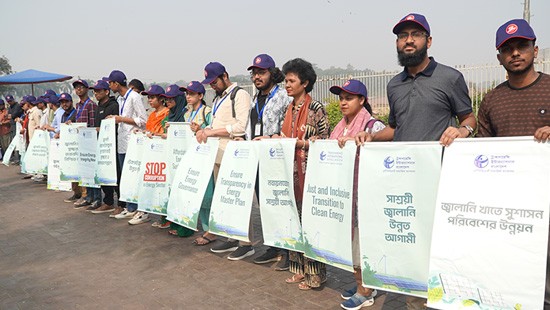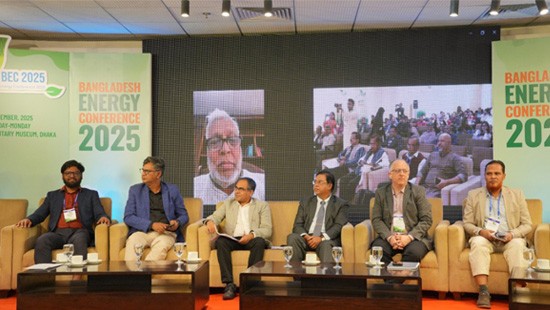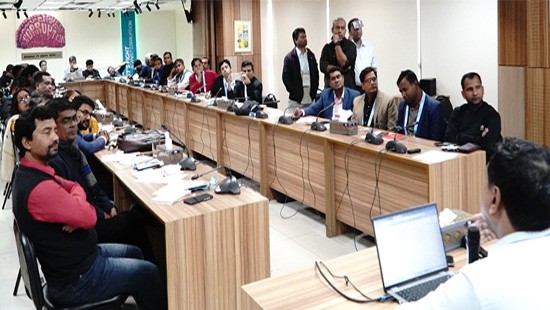Published: 06 November 2021

Dhaka, 4 November 2021: While discharging their duties, female UNOs of Bangladesh endure political pressure and non-cooperation from different officials, including the law enforcers, reported a TIB study released on November 4, 2021, through a virtual press conference.
The research titled ‘Role of Women Upazila Nirbahi Officer (UNO) in Establishing Good Governance at the Local Level: Challenges and Way Forward’ revealed that female UNOs also faced sexual harassment and gender discrimination.
Over an incident of physical harassment, a female UNO said, "I was deliberately pushed from the back when I inspected a development work with a chairman and a minister. I complained in this regard and asked to provide security in future."
More than 78 percent of female UNOs participating in the study said they faced challenges while discharging their official duties.
Both quantitative and qualitative methods were used for the research. An online survey for the report was conducted from June 2020 to March 2021, where 45 female UNOs responded. As of June 2020, out of 485 Upazilas in the country, 149 had female UNOs.
The report identified that female UNOs mostly face challenges while carrying out four activities, including secretarial support to the Upazila Parishad, assistance to the Upazila chairman, coordination with other divisional officials or institutions at the Upazila level, and following government instructions.
Speaking at the event, TIB ED Dr. Iftekharuzzaman said, “In the global context, we see those countries with a high number of women participation in politics and administration have lower rates of corruption and a conducive environment for good governance. In contrast, countries that have failed to effectively empower women politically and administratively are more prone to corruption and challenges in good governance.”
As per the study, while providing secretarial assistance, local political leaders and public representatives pressurise the UNOs to commit irregularities in distributing relief supplies, force them to make recommendations for additional relief items, demand not to verify expenditures, and compel the UNOs to approve fake expenditure bills.
Besides, the report showed that while assisting the Upazila Chairman, the UNOs did not get enough cooperation, and 5.7 percent of UNOs complained about sexual harassment. While coordinating with other divisional officers or institutions at the Upazila level and following government instructions, the UNOs went through similar experiences.
The report also found that apart from pressure from the vested political groups, a section of local journalists, law enforcement personnel, and government officials, including Deputy Commissioners (DC) and additional DCs, also create obstacles for the female UNOs.
Talking about an example of non-cooperation from the law enforcement, a female UNO said, "I wanted the police force to stop a gang of drug addicts, but there was no support. I was told that everyone was busy” (photo design
Picture- personnel who create obstacles for the female UNOs (column chart)
To create a more suitable working atmosphere for women UNOs, the TIB study suggested eight recommendations, including the adaptation of policy-level decisions by the ministries to stop illegal influence over the women UNOs, and necessary legal aid and safety measures for them.
For more detail, click - here






